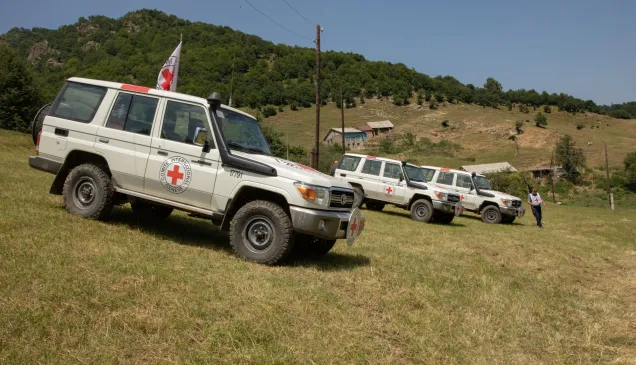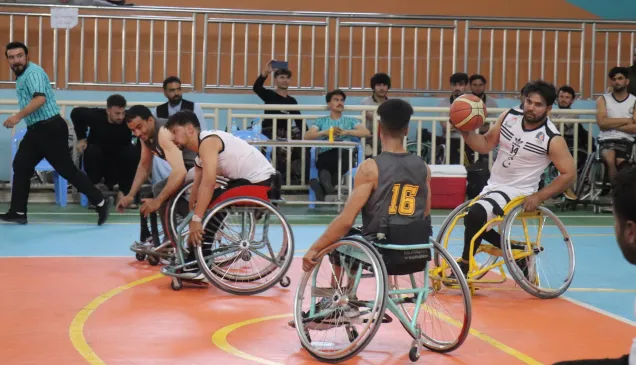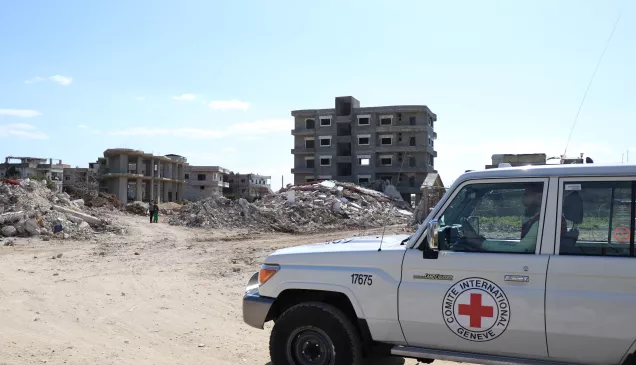Ukraine: As a new school year begins, safety lessons about the dangers of explosive ordnance remain vital
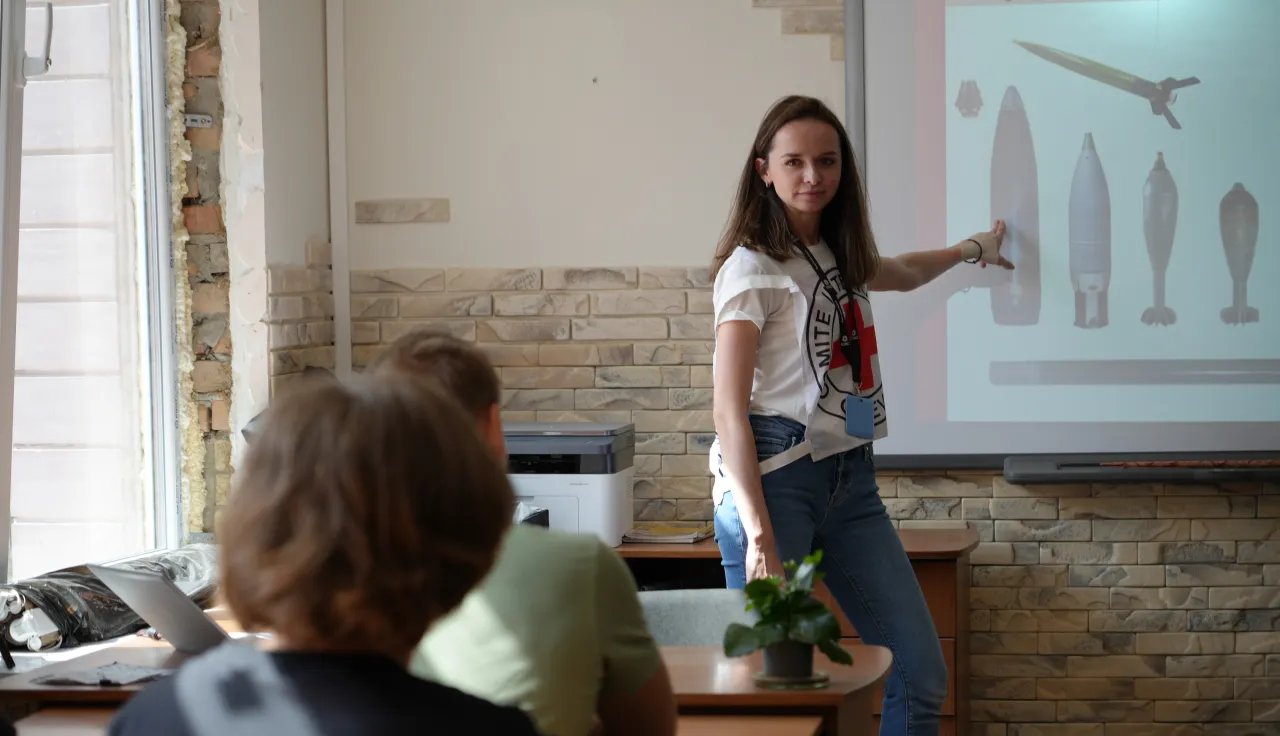
As the new school year started recently in Ukraine, now tragically one of the most weapon-contaminated countries in the world, the focus extends beyond academics. The pervasive presence of explosive ordnance, including landmines and explosive remnants of war, poses a grave danger to children, making safety education a critical part of the curriculum.
The International Committee of the Red Cross (ICRC) has been actively delivering direct safety messages to children and teenagers and training teachers to convey these messages to schoolchildren, aiming to reduce the risk of injury from explosive ordnance. Mines, cluster munitions, and other unexploded or abandoned ordnance continue to pose a threat, particularly in frontline and retaken regions.
Through awareness and education, the ICRC equips young people with the knowledge to stay safe. Between 2023 and mid-2024, over 67,000 children participated in these vital risk awareness and safer behaviour sessions provided jointly with the Ukrainian Red Cross.
These efforts extend beyond direct student outreach. 124 teachers across Ukraine have been equipped to deliver these critical safety messages, ensuring a wider reach and lasting impact. The following stories illustrate the tangible difference these initiatives are making in the lives of young students.
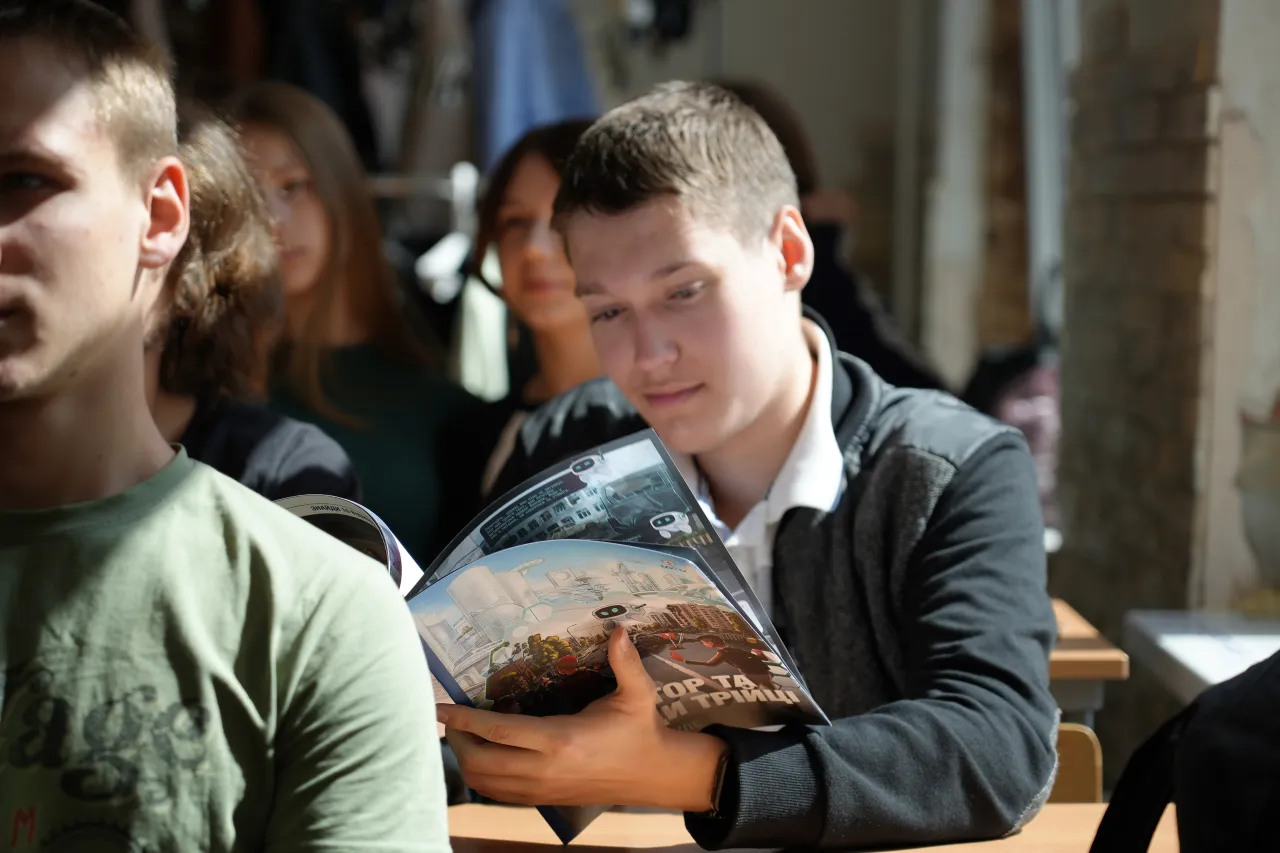
Danylo's unexpected lesson
Danylo, a ninth-grader from Kyiv, is one such student grappling with this new reality. Reflecting on his experience, he says, "Hard times make strong people," acknowledging the challenges faced by his generation. Despite disruptions to his studies and the necessity of switching between in-person and remote learning, Danylo's thirst for knowledge remains strong. He finds solace in his favourite subjects, particularly history, which he uses as a lens to analyse the present.
The armed conflict has forced Danylo to confront a grim reality. "I was not interested in weapons until 2022, but now I have to be," he admits. Thanks to sessions conducted by the ICRC, Danylo is now aware of the different types of explosive ordnance and the safety measures to follow. He recognizes the risks in his life, particularly with his summer house located in a potentially mined area.
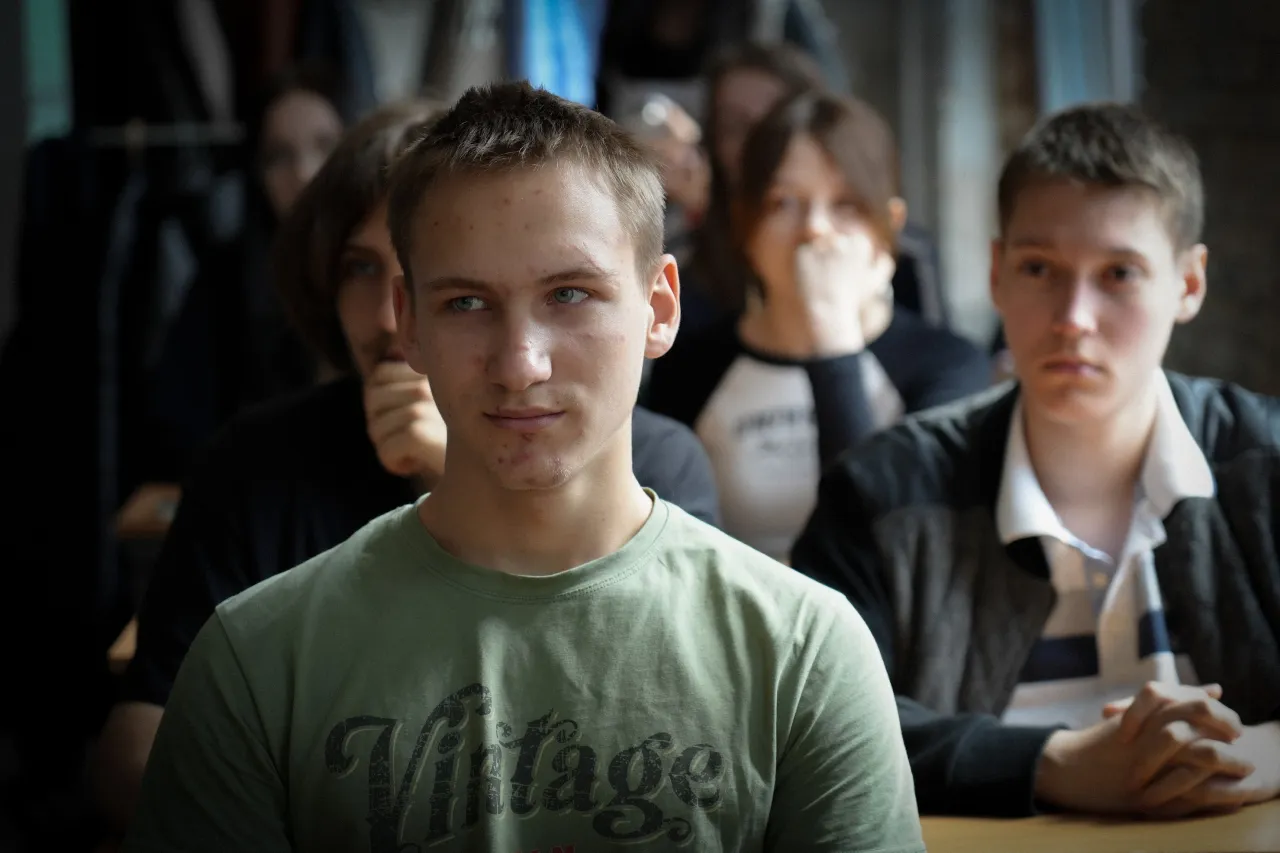
Maksym's close call
Maksym, a 15-year-old from Kyiv, shares a similar experience. Maksym's love for physical education and fishing was abruptly interrupted by a powerful explosion near his school one morning. "It was early, and I was sleeping. Then there was an explosion, and the door to the balcony flew open," he recalls. The blast wave shattered windows in the school building, leading to the cancellation of classes. Maksym and his friends wanted to help clean up the damage, but their teachers prevented them from doing so, ensuring their safety.
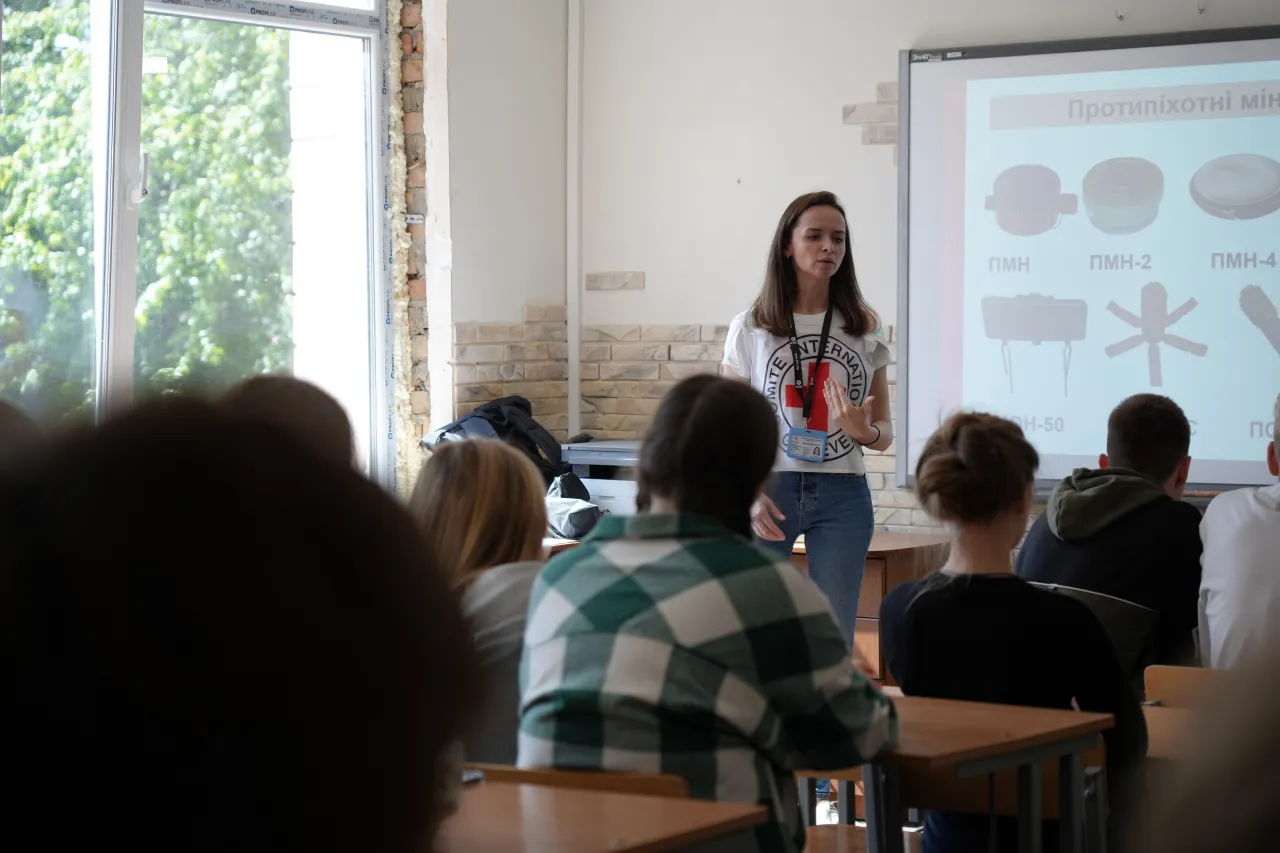
From the frontlines of education
Yuliia, a weapon contamination field officer in Kyiv, witnesses the impact of conflict on these young lives firsthand. “Working in schools, you can see how deeply students are affected by the armed conflict,” she observes. "Children grow up faster and understand certain realities better than adults." She notes the varying responses depending on the school’s location: children in remote areas are more open and eager to share their stories, while those in cities tend to be more reserved, though still curious and engaged.
The ICRC has developed age-appropriate resources for younger children and teenagers, including comic books, to convey engaging safety messages.
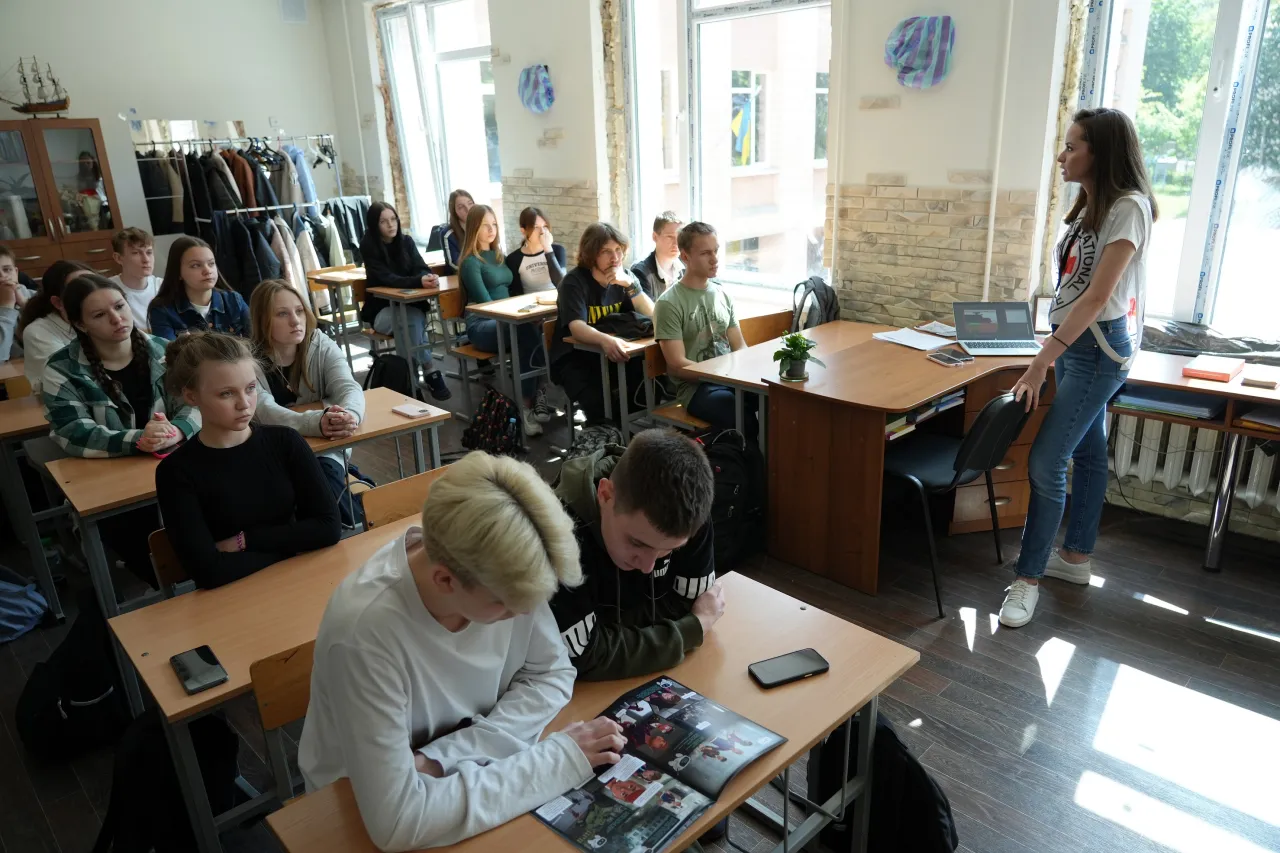
Empowering through education
The voices of Danylo and Maksym underscore the crucial role of education in mitigating the risks of explosive ordnance. The ICRC's multifaceted approach, which includes direct engagement with schools and lyceums, developing educational resources, and providing institutional support, aims to create a safer environment for the affected communities.
Additionally, the ICRC provides regular training to institutions such as the State Emergency Service of Ukraine (SESU) and works with the Ukrainian Red Cross to disseminate vital information about the dangers of landmines and explosive remnants of war within their communities.
As Ukraine's children embark on a new school year, the shadow of armed conflict looms large. Yet, amidst these challenges, there is also resilience, hope, and a collective effort to ensure that the armed conflict does not define these young lives.
Learn more about the ICRC's work in Ukraine
- Ukraine: Finding creative paths to learning amid armed conflict
- Russia-Ukraine: Overview of the ICRC’s response two years after the escalation of the armed conflict
- Russia-Ukraine international armed conflict: The Red Cross and Red Crescent response from February 2022 to June 2023
- Russia-Ukraine international armed conflict: Your questions answered about ICRC’s work

